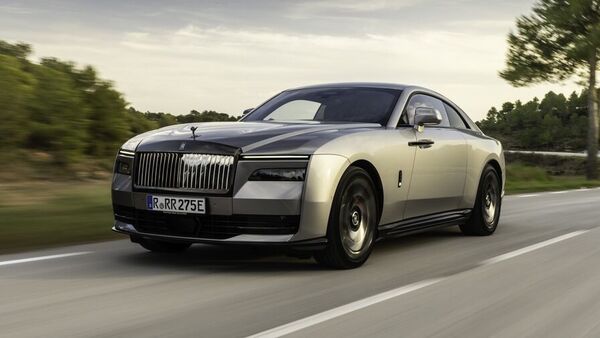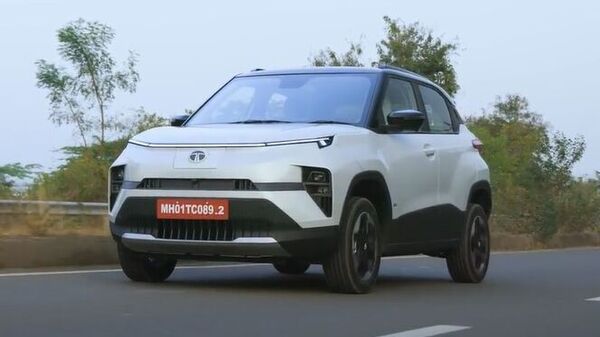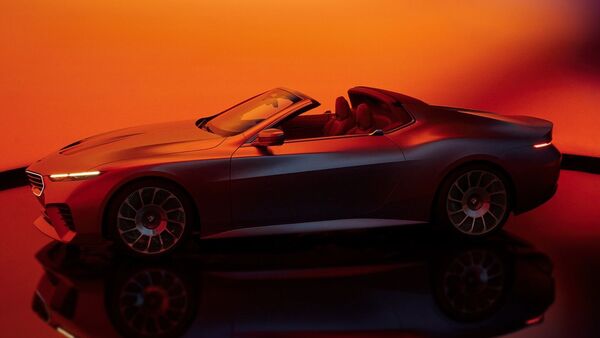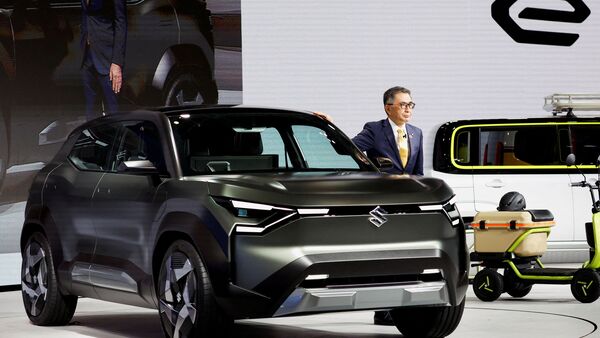
Suzuki reinforces India’s role in FY30 growth strategy as it unveils first EV, e Vitara
4 months ago | 5 Views
India’s importance for the Japanese vehicle maker, Suzuki Corporation is not a secret. Time and again, the company has emphasised on its commitment to the country and the importance that India holds for Suzuki Corporation. During the recent unveiling of the company’s first ever battery electric vehicle, the Suzuki e Vitara, Toshihiro Suzuki, Representative Director and President, Suzuki Motor Corporation, reiterated the importance of India for the company, not just as the largest market but also as a key market for global growth.
Toshihiro stated that India is and will remain a key business region for the company to achieve its growth strategy for fiscal year 2030. Interestingly, while in fiscal year 2023, the company achieved revenue of 5.4 trillion yen with 3.2 million cars sold and 1.9 million motorcycles globally, Suzuki is targeting sales of 7 trillion yen in fiscal year 2030, and achieve sustainable growth.
The focus here is on sustainable growth. For FY2029-30, Suzuki has stated that it will contribute to the realisation of a carbon neutral society and the economic growth of emerging countries such as India, ASEAN, and Africa, with our main business regions, Japan, India and Europe, as the core.
The focus will be on creating solutions that are unique to Suzuki, which are to develop products and services focused on the customer and grow along with the operating countries and regions.
India’s role is changing dynamics for Suzuki
One of Suzuki Corporation's major goals for fiscal year 2030 is to achieve significant progress towards carbon neutrality. The company aims to reach carbon neutrality in Japan and Europe by 2050, and in India by 2070, aligning with the target dates set by respective governments.
Additionally, the company also plans to grow in other regions such as Africa, Latin America and Southeast Asia. Central to this goal is Suzuki's electric vehicle (EV) strategy, which includes plans to introduce six EVs in Japan and India and five in Europe by FY2030. This transition starts with the Suzuki e Vitara, the brand’s first electric vehicle.
Suzuki previously announced a lineup of five EVs, including models like the Maruti Suzuki e Vitara, WagonR, Fronx, and two others, beginning with the e Vitara. Notably, production of the Suzuki e Vitara will commence at Suzuki Motor Gujarat (SMG) by spring 2025, with plans for export to global markets.
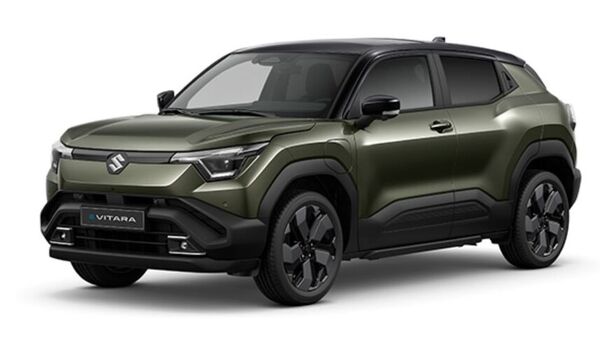
To support its BEV production, Suzuki has committed to invest ₹3,200 crore to add a fourth production line at the SMG plant. This expansion will increase the plant's annual production capacity from the current 7,50,000 units to one million units by FY2026.
Additionally, Suzuki plans a ₹3,500 crore investment to establish a second facility at SMG, which will add another one million units annually by FY2029. This expansion will ultimately boost SMG’s total production capacity to two million units annually, supporting Suzuki’s ambitious global growth and sustainability targets.
Suzuki’s technology strategy for carbon neutrality
In addition to expanding production, Suzuki Corporation has outlined a comprehensive technology strategy for the next decade aimed at achieving its carbon neutrality goals. This strategy is focused on reducing energy consumption through three core concepts: Genba, Genbutsu, Genjitsu (visit the site, make direct observations, and determine the facts), Sho-Sho-Kei-Tan-Bi (smaller, fewer, lighter, shorter, beauty) and Yaramaika (to challenge).
Toshihiro highlighted that the company’s electric vehicle (EV) strategy will be guided by the principles of Sho-Sho-Kei-Tan-Bi, which emphasises producing vehicles that are compact, efficient, and resource-conscious. This philosophy drives the development of EVs with streamlined, highly efficient motors and lightweight batteries, ultimately maximising energy efficiency while minimising environmental impact.
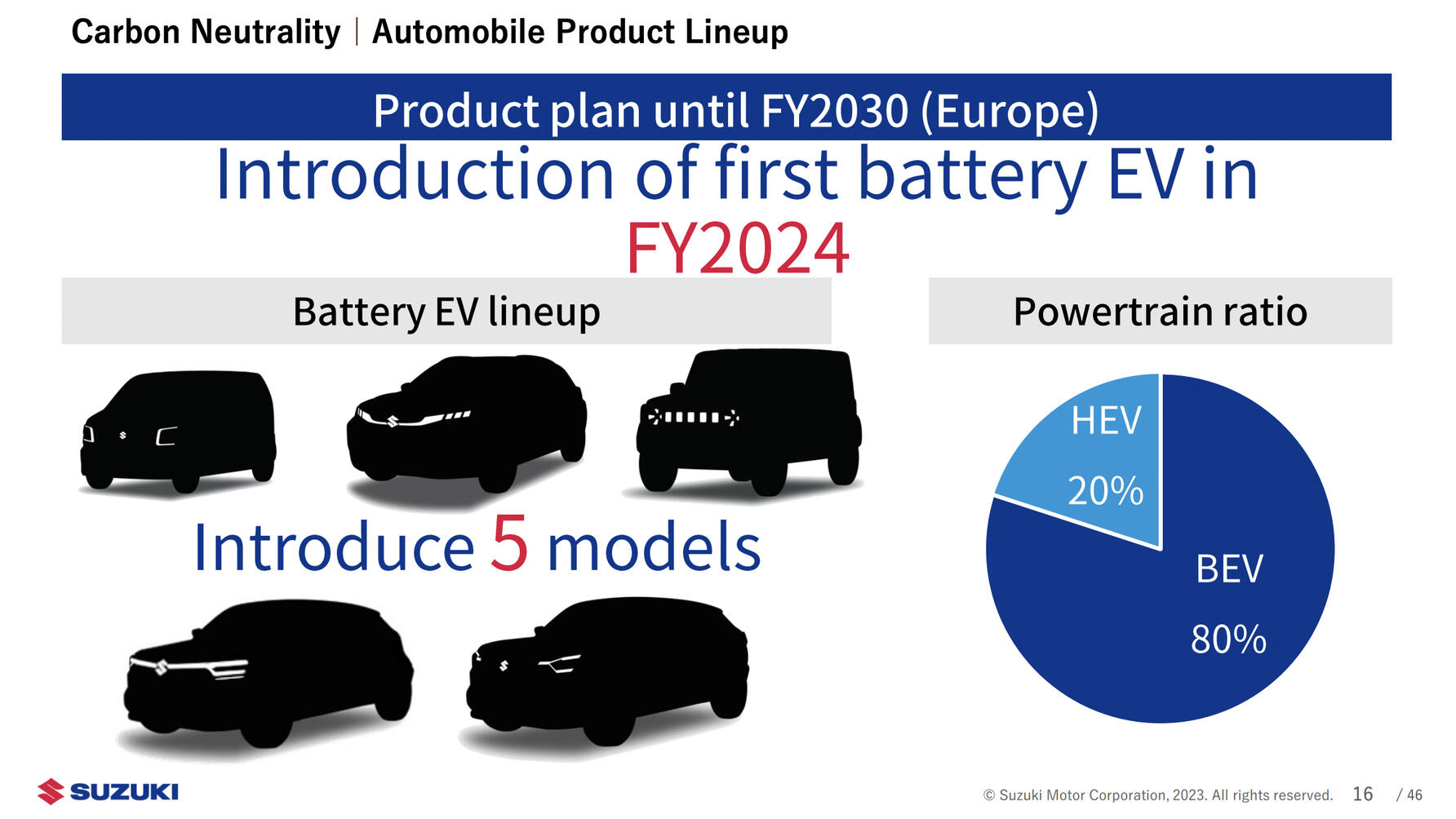
Furthermore, Suzuki’s commitment to energy efficiency extends throughout the entire vehicle life cycle. Central to this approach is the concept ofKei, or compactness. According to Toshihiro, Suzuki cars are approximately 200 kg lighter than typical European, Indian, or Japanese cars.
This weight reduction translates into a 6 per cent decrease in energy required for driving, 20 per cent less energy for manufacturing, and overall lower resource usage, aligning with Suzuki's ambition to significantly cut CO2 emissions and contribute to a more sustainable future.
Multi-pronged approach key to sustainability
While EVs are a central focus, Suzuki’s sustainability strategy encompasses a wider range of initiatives. The company is actively developing high-efficiency internal combustion engines, advanced driver assistance systems, and vehicles designed for streamlined recycling and disassembly, all aimed at reducing its overall environmental footprint.
Suzuki Corporation understands that a “one size fits all" approach to electric vehicles (EVs) is not practical for global markets. According to Toshihiro, the company plans to diversify its investments not only in battery EVs but also in hybrids and internal combustion engines (ICEs) that operate on alternative fuels like CNG, biofuel, and ethanol. This multi-pronged approach enables Suzuki to offer tailored solutions that maximise performance and energy efficiency across diverse markets.
Also watch: Maruti unveiled eVX EV Concept at Auto Expo 2023
Suzuki’s commitment to regional carbon neutrality goals aligns with its mission to expand customer choices and provide products and services that cater to specific regional needs. By addressing environmental impact across different technologies, Suzuki aims to support sustainable mobility and meet the unique demands of each market.
Changing brand perspective
Toshihiro envisions Suzuki’s future as a “lifestyle infrastructure company," one that plays an integral role in revitalising economies by addressing daily mobility needs through initiatives like infrastructure development and next-generation mobility solutions.
The company is dedicated to delivering high-value products and services that make it essential to both people and society. According to Toshihiro, this mission includes a strong commitment to carbon neutrality and the realisation of a sustainable future, positioning Suzuki as a key contributor to social and environmental progress.
HOW DID YOU LIKE THIS ARTICLE? CHOOSE YOUR EMOTICON !
#

